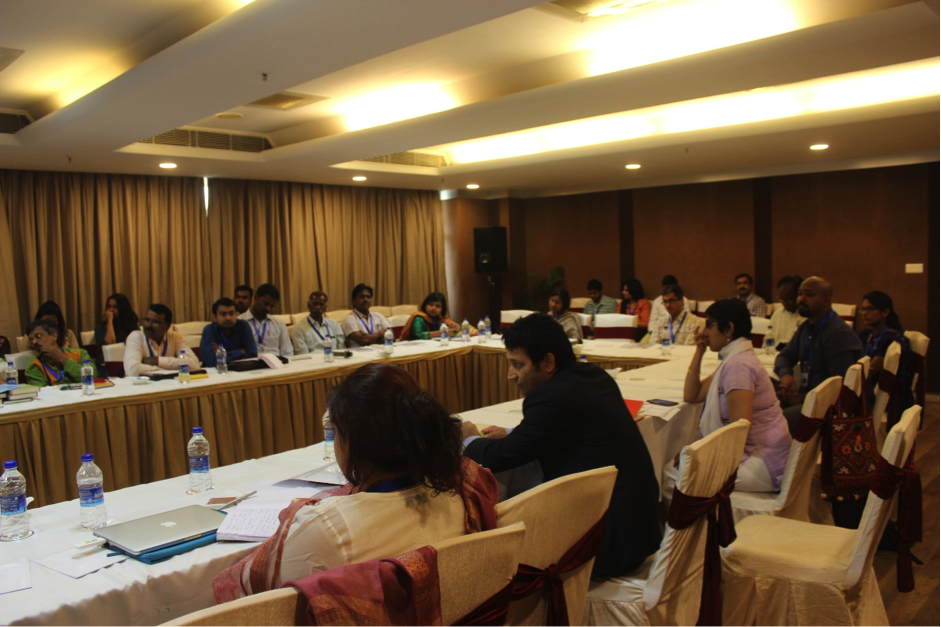South Asian Consortium for Interdisciplinary Water Resources Studies (SaciWATERs) organized an event on 23rd and 24th March 2017 to mark the occasion of World Water Day. The event included a wide variety of stakeholders including policy makers, government officials, academicians, researchers, NGOs, CSOs and community representatives from of Telangana State. The topic of the workshop was current water issues and policy gaps in the newly created state. The workshop was organised in partnership with the British Deputy High Commission, Hyderabad, Netherlands Organization of Scientific Research (NWO), Bordeaux Metropole and Arghyam.
The workshop saw active participation from government officials representing from Hyderabad Municipal Water & Sewage Board (HMWSSB), Rural Water Supply and Sanitation (RWSS), Swachh Bharat Mission, and Central Water Commission (CWC), and academic researchers from Hyderabad Central University (HCU), Jawaharlal Nehru Technical University (JNTU), Hyderabad and Jawaharlal Nehru University (JNU), New Delhi and civil society organisations and community representatives from periphery villages as well as urban slums.
The workshop focused on the strengths as well as limitations of the current policies, treating water as an economic good that can be priced and privatised rather than a basic right for all. It also covered the conflicts that have emerged from privatization and the process of the government creating spaces for entry of private players into the water delivery processes. The discussion revolved around the core issues of the flagship programmes of Telangana State Government – Mission Kakatiya and Mission Bhagiratha.
The second day of the workshop focused on key issues in community-state interaction and policy implementation. The community members focused on their willingness to supplement government initiatives with certain ground level efforts of their own – but they stressed the lack of awareness and information about the processes. Issues were voiced from rural, urban as well as peri urban spaces. The need to focus on vulnerability in the periurban spatial contexts came out as a focus – a need to move away from a simple rural-urban binary and realize multiplicity of spatial contexts that have different combinations of rural and urban processes.
The event highlighted the need for mutual efforts from state as well as grassroots level and the importance of multi-level collaboration. The responsibility of communities must supplement efforts of the government, and this brought in the role of the media, civil society, as well as the government in disseminating information, create awareness at the grassroot level and capacity building on a local level.
For more information, please contact Aditya Bastola.
